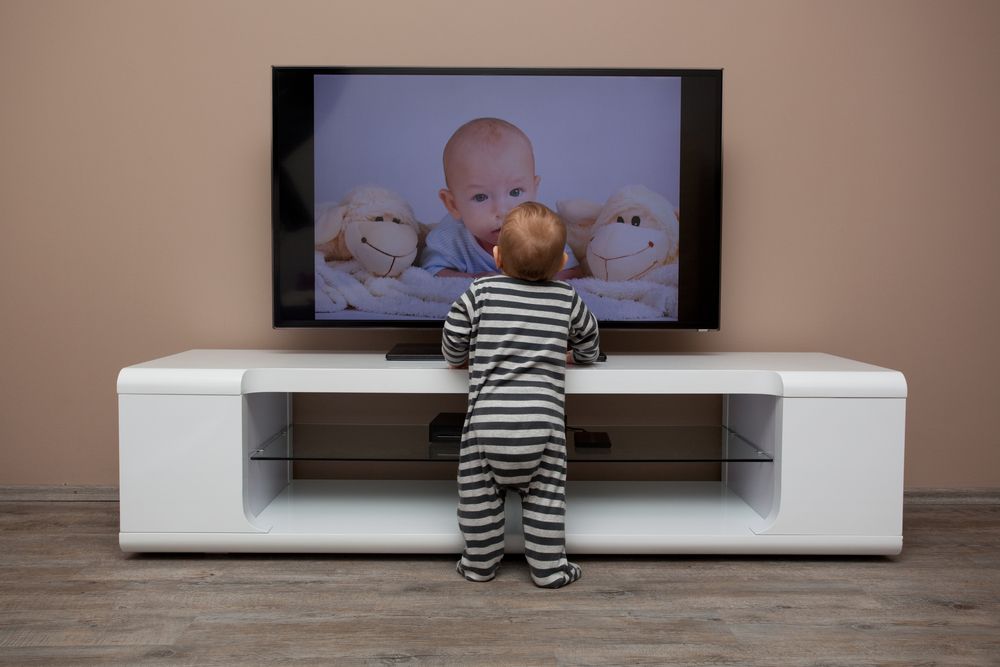Sleep time and TV time new findings
Published on Wednesday, 17 July 2019
Last updated on Friday, 17 December 2021

Sleep is vital for the correct function and support of all body systems, as well as physical, mental, and emotional health of children. Although there might be different reasons a preschooler isn't sleeping well, like if they're unwell or thinking too much, screen time is an environmental factor that can disrupt sleep.
To ensure that young New Zealanders get plenty of rest and minimal screen time, the Ministry of Health's Active Play Guidelines for Under Fives recommend preschoolers receive 10 to 13 hours of good-quality sleep, and less than one hour of screen time, each day.
These guidelines are backed by research from the University of Auckland which found preschoolers who exceed the screen time guidelines are at a greater risk of obesity, poorer motor skills, hyperactivity problems, and poorer sleep, with other researchers finding that screen use affects the quality and quantity of children's sleep.
This thinking isn't confined to New Zealand, though. Researchers at The University of Massachusetts Amherst have established that preschoolers who watch TV sleep significantly less than those who don't, so let's see why it's important to limit screen time and support good sleep the world over.
What did the American research involve?
One of the brains behind this research is neuroscientist, Rebecca Spencer, who has previously studied the role of naps in enhancing children's memory.
For this new research, Ms Spencer took a 'very diverse' group of 470 preschoolers from Western Massachusetts and got them to wear an actigraphic, a watch-like device, that measured children's sleep quality and duration for up to 16 days.
In addition, parents and care-givers answered questions about demographics, and their child's health, behaviour and TV use.
What were the results of the American study?
After tracking the sleep of 470 preschoolers and looking at their data, it was found that:
- A sizeable 36 per cent of three to five-year-olds had a TV in their bedroom, and one-third of those children fell asleep with the TV on, 'often watching stimulating or violent adult programming'.
- Fifty-four per cent of the children watched more than an hour of TV per day Monday to Friday, and this figure rose to 87 per cent on weekends.
- Preschoolers who watched less than one hour of TV a day got 22 minutes more sleep each night (or nearly 2 ½ hours per week) than preschoolers who watched more than an hour of TV a day.
- On average, young children without a TV in their room slept 30 minutes more at night than those with a bedroom telly.
- Children with a TV in their room slept, on average, 12 minutes more during naps, but this did not make up for the sleep lost at night. They slept 17 minutes less over a 24-hour period than preschoolers without a TV in their room.
As well as finding preschoolers who watch TV sleep less, this research also shatters the myth that television helps children get to sleep.
Ms Spencer says, 'Parents assumed that TV was helping their kids wind down. But it didn't work. Those kids weren't getting good sleep, and it wasn't helping them fall asleep better.'
How do New Zealand's Active Play Guidelines for Under Fives compare globally?
Ms Spencer says parents 'tend to overestimate sleep duration' and probably underestimate TV use, so the firm guidelines set by our Government are a good way to know exactly how much sleep and screen time young children need.
It's also worth noting that New Zealand is not alone in prioritising good-quality sleep and limiting screen time.
New guidelines from the World Health Organization (WHO) emphasise the importance of 'better quality sleep' for young children's long-term health and are in line with the Ministry of Health's recommendations.
The WHO says that preschoolers aged three to four should have 10 to 13 hours of good-quality sleep, which may include a nap, with regular sleep and wake-up times. In terms of screen usage, it says preschoolers should have no more than one hour of sedentary screen time a day, with less better.
In the US, the American Academy of Pediatrics recommends children aged two to five, screen time should be limited to one hour a day of 'high-quality programs' watched with parents to 'help them understand what they are seeing and apply it to the world around them'.
In summary, it's important that under fives' days are active and their nights are restful. Good-quality sleep is vital for growing bodies and minds, and as children learn, grow and develop, it's vital that they look beyond the screen to find information, entertainment and relaxation.
References
University of Massachusetts Amherst
Ministry of Health's Active Play Guidelines for Under Fives
CareforKids.co.nz: What are the Sleep Needs of Young Children?
Related Articles

Books are still better for children than devices
Even in the age of digital technology books will always be better for children.

Screen time - Why less is best for preschoolers
Tablets and TV can be a tempting way to entertain preschoolers, but according to recent research, too much screen time can do more harm than good.

Rise and Shine How night nannies are helping sleepy NZ families
Night nannies are popular in other parts of the world, and it seems New Zealanders are starting to see the light when it comes to this form of child care.
